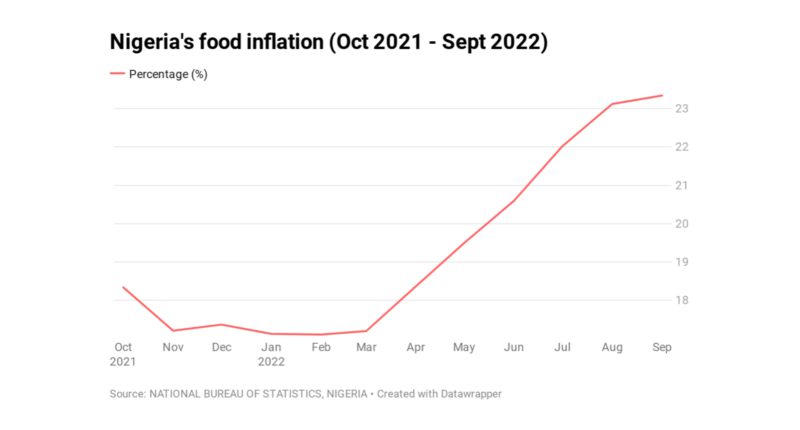In about eight weeks, Christmas bells would begin to ring in many parts of the world. The festive season is usually a time of joy and happiness for many people in different parts of the world. Unfortunately, this might not be the case for the victims of floods in Nigeria as lives have been lost, properties drenched, farmlands and livelihood completely destroyed.
To worsen the situation, the country’s inflation rate hiked to 20.77 percent for the eighth consecutive month in September 2022, from 20.52 percent in August. This figure represents the country’s highest reading since September 2005, despite the Central Bank of Nigeria (CBN) raising interest rate amongst other efforts.
A recent report disclosed that food inflation has also risen for the seventh consecutive month to 23.34 percent, the highest reading since October 2005. This implies the prices of foodstuffs have significantly increased.
State of play
With the recent flood displacing over 3 million people, killing over 600 people, submerging 340,000 hectares of land, destroying over 82,000 houses and cutting off many road networks (as of the federal government last report) food prices would projectively climb astronomical heights.
Africa’s most populous country, with over 200 million people, is seeing communities where crops such as sorghum, maize, rice and vegetables are abundant currently under water. And as the festive season approaches, these food prices would further increase due to the high demand from consumers.
The big picture
As floods and food crises are happening simultaneously and the festive season is approaching, Nigerians are bracing for one of the worst economic crises in years.

